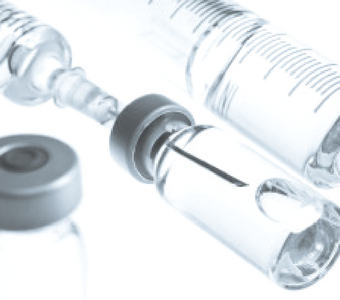On Tuesday morning, NuPathe Inc. (NASDAQ:PATH) announced the receipt of an $8.5M term loan, just a month after the company firmed up the balance sheet with a $28M stock offering ($26.3M net proceeds). Although most of the term loan will replace $7.9M of existing debt, NuPathe has drastically improved its cash position in the last month, and the timing couldn’t be more pertinent. The FDA will decide on an approval for the company’s lead product, the Zecuity transdermal migraine patch, by January 17, and NuPathe plans to commercialize the product shortly after if it receives approval. On its most recent conference call, management expected to be able to launch Zecuity in the fourth quarter of 2013, and although actively seeking, NuPathe has yet to secure a commercial partner for Zecuity, but has reiterated that a partnership is a top priority. With Zecuity’s PDUFA approaching and financing risks off the table for the interim, PATH should continue to climb off of its November lows.
NuPathe faced some setbacks in the recent development of Zecuity, which has pressured shares since late last year, but management believes they have successfully addressed all issues and are confident in the product’s approval. In August of 2011, the FDA responded to NuPathe’s initial New Drug Application with a number of manufacturing and safety questions in a Complete Response Letter (CRL). After additional studies and changes to the product’s design, the FDA accepted the resubmitted NDA in July of this year. Importantly, the FDA’s CRL noted that NuPathe had successfully established the efficacy of the migraine patch, despite the aforementioned issues. If approved, Zecuity will be entering a U.S. market for anti-migraine products anticipated to reach $3.2B by 2015. Should Zecuity acquire even a conservative 10% of the domestic market, the device stands to generate revenue of more than $300M. Considering the stock’s current $45.4M market capitalization, PATH has considerable potential if Zecuity receives FDA approval, and the stock is supported by roughly $1.75 in cash per share, limiting downside from current prices.
Following approval, however, PATH shares face a number of challenges before the company brings Zecuity to market, if the treatment is approved. In the long-term, warrants from its latest financing and the conversion of Preferred shares may dilute the stock, and management has guided for another cash infusion ahead of launching the product in late 2013, ideally as part of a partnership agreement. Nevertheless, PATH offers short-term gains leading up to the FDA’s decision as traders rally in anticipation; investors can choose to play the potential run-up into the decision, and avoid the binary risk of approval.



